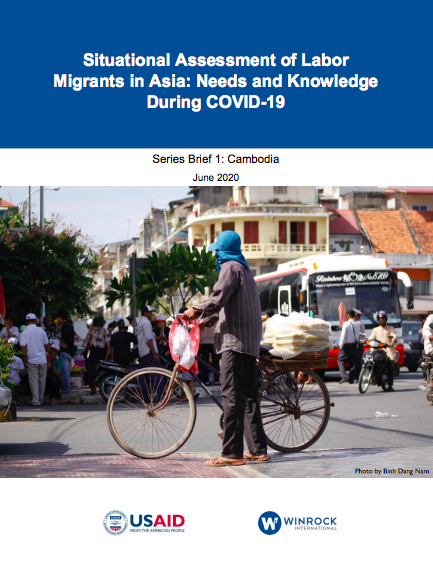Series Brief 1: Cambodia (June 2020)
Between the months of February and May 2020, more than 90,000 labor migrants returned to Cambodia as the Covid-19 pandemic caused mass business and industry closures in destination countries such as neighboring Thailand. Tens of thousands were left unemployed, facing uncertain futures. To better understand the short- and long-term needs of this population, the USAID Asia Counter Trafficking in Persons (CTIP) project, implemented by Winrock International, collected information from 63 returned Cambodian migrants through a quantitative survey that took place between May 14 – 22.
Series Paper 2: Bangladesh (July 2020)
Between the months of February and March 2020, more than 200,000 labor migrants returned to Bangladesh as the Covid-19 pandemic caused mass business and industry closures in destination countries such as Saudi Arabia and Malaysia. Hundreds of thousands were left unemployed, facing uncertain futures. To better understand the short- and long-term needs of this population, the USAID Asia Counter Trafficking in Persons (CTIP) project, implemented by Winrock International, collected information from 155 returned Bangladeshi migrants through a quantitative study that took place from May 15 to June 4.
Series Paper 3: NEPAL (August 2020)
Half a million Nepali migrants are estimated to have lost jobs abroad due to the Covid-19 pandemic. The government of Nepal shut the country’s borders in late March to both its own citizens and foreigners alike, leaving migrants stuck and largely unemployed in dozens of countries. In India, where over two million Nepalis migrate for work, thousands attempted to cross the border on foot as severe lockdowns left migrant workers in desperate situations.
Nepal’s borders will remain closed until mid-August, but in June the Nepali government started working with popular destination countries such as Kuwait to repatriate workers. In late June, it was estimated over 25,000 Nepali workers were repatriated from across the world.



